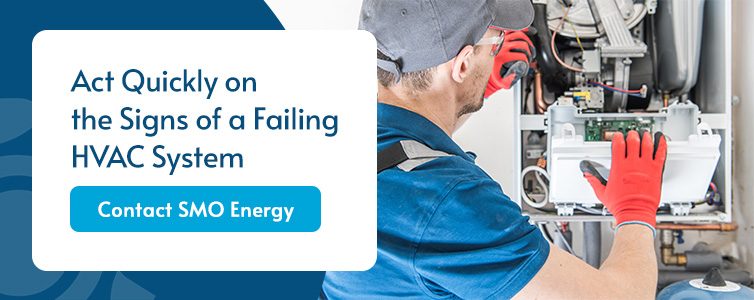What to Do If You Hear Strange Noises Coming From Your Heating System
In an ideal world, the appliances that make our homes comfortable places to live would operate smoothly and soundlessly. If you hear noises coming from your heating system or furnace, you may wonder whether they are a red flag or no cause for alarm.
Learn about some strange sounds a heating system might make and what they mean for the state of your equipment.
10 Strange Noises Your Heating System Might Make
An oil or gas heater making noise is not always a cause for concern. Knowing which sounds are normal and which are a reason to call a technician will help you feel more at ease as a homeowner. The ability to identify strange sounds will also help you take action quickly, potentially avoiding the need for an unexpected HVAC repair or even replacement.
Why Is My Heater Making Strange Noises?
Some reasons your furnace might be making strange noises include:
- An issue with fuel ignition
- Clogged or dirty air filters
- Loose ducts
- A loose blower fan
- Cracked heat exchanger
- Sediment buildup (in a water heater)
- Worn-out fan belt
- A leak
Most likely, your furnace or heating system will make a specific noise to alert you to a potential problem. Listen for these warning sounds from your heater or water heater.
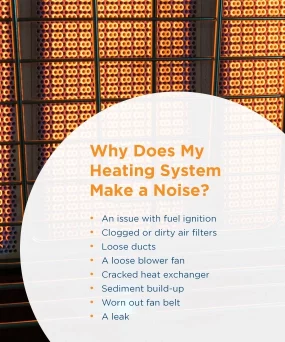
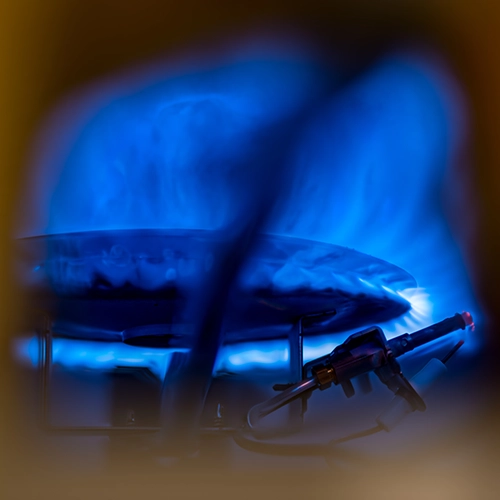
1. Furnace Banging
If you hear a loud bang from the furnace when it kicks on, it could indicate an ignition issue. When your thermostat signals your system to come on, it triggers the gas valve to open. The ignition system or pilot light should ignite the gas right away.
When there is a problem with the ignition system, the combustion chamber may contain a small amount of gas buildup that creates a banging noise upon ignition. The sound can travel throughout your home via the ductwork.
Several things can affect the ignition of gas in your furnace. For example, a weak flame in a pilot light could prevent quick ignition. Furnaces that have electronic ignition might have an issue with the ignition system. Additional causes can include dirty or clogged burners or low gas pressure that requires more buildup in the chamber before ignition occurs. A trained technician should look at problems with the ignition system in a furnace — the sooner, the better in most cases.
Contracting and expanding ductwork is another reason your furnace might make banging noises. The ducts that send warm air throughout your home consist of thin metal that expands when heated and contracts as it cools down after the furnace cycles off. As the metal ducts expand, they typically make a banging or booming noise. Banging ductwork is usually not a cause for concern, but you can reduce the noise by changing the ducts’ shape or material.
2. Furnace Whistling
Furnace whistling occurs for the same reason whistling in humans does — airflow interference. When you whistle, you typically make an effort to produce the noise by pursing your lips as you exhale. When a furnace whistles, it often indicates a blockage, like an air filter in need of replacement or cleaning. Other possible causes of a whistling sound in your furnace include a blocked return, clogged ducts and closed vents or dampers. You might be able to solve the sound yourself by cleaning the ducts, filter and return and opening the vents and dampers.
In some cases, whistling noises require professional repairs or a total furnace replacement. For example, whistling can indicate that your ductwork is too small for your furnace or the system is too big for your home. A whistle might also signify an issue with your blower or burners.
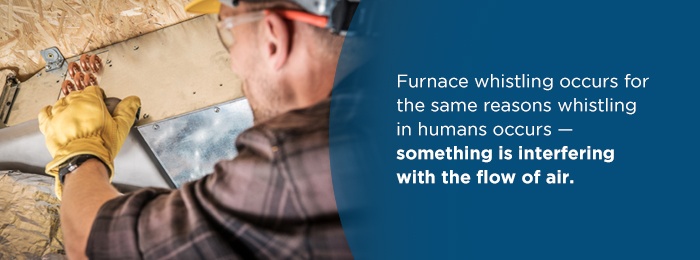
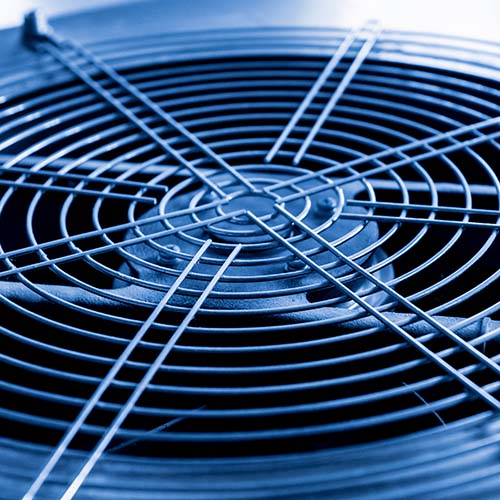
3. Furnace Clunking
When your furnace functions properly, it will not make clunking or knocking noises. One reason for the knocking is an issue with the fan. For example, a misaligned fan blower can cause the blades to contact the wall. Another cause of a clunking or knocking noise in a furnace could be a fan belt that has cracked or split and is hitting other materials as it rotates.
If your furnace goes “clunk clunk” at any time, your best option is to turn it off and call a technician to take a look.
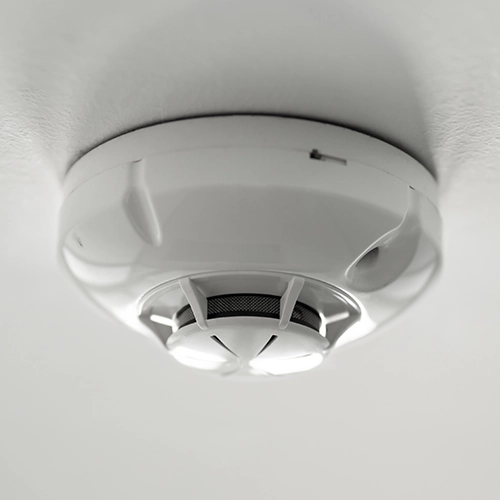
4. Furnace Rumbling
When your furnace powers on for a cycle, you might hear a gentle whooshing or roaring sound. If that softer noise turns into a low rumble, it can be a sign of trouble. If the rumbling is loud and keeps going after the cycle completes and the furnace switches off, it is most likely due to a problem with the burner. Gas or oil can remain in the combustion chamber after the cycle ends and continue to burn, which accounts for the furnace making the rumbling noise you hear.
A rumbling sound is difficult to ignore and demands your immediate attention — excess fuel remaining in the chamber can create high carbon monoxide levels in your home. Turn the furnace off and call a technician for assistance right away.

5. Furnace Humming
A humming noise coming from your heating system is generally not a cause for alarm. Many furnaces hum or “whir” when the burner ignites. Sometimes, a clicking noise follows the hum. If the furnace is newer, the transformer might hum as it adjusts the current that flows to the appliance.
Sometimes, a humming sound can be a cause for concern. If your furnace inducer motor makes a loud humming sound throughout its operation, not just at the beginning of the cycle, it could be a sign that something is going wrong with the motor. Another cause of a loud hum is a worn fan. Note the noise volume and when it occurs. If it happens throughout the cycle, it’s best to call a technician in for an expert opinion.
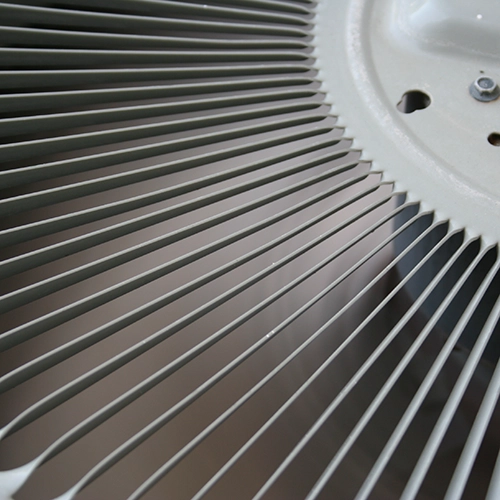
6. Furnace Screeching or Scraping
If you hear screeching and scraping, like two pieces of metal are rubbing together, that might be what is happening. The blower fan may have come loose, letting the blades drag across the furnace casing. A scraping noise can also indicate other parts of the system have loosened. If you are unsure of the cause of the noise, turn the furnace off and have a technician come and take a look at it.

7. Heater Making Buzzing Noise
Buzzing noises are another common furnace sound that can come from several different causes. For example, all furnaces contain a transformer box that alters the incoming electricity’s voltage to match your system. A buzzing noise can occur during the running cycle when this part works its way loose or ages.
Your furnace’s blower motor propels warm air through your home’s ducts and vents. Buzzing can indicate poor alignment or a worn-out motor that needs replacing.
Additionally, a defective capacitor can produce buzzing. This part of the motor helps leverage stored electricity and regulate its supply at startup and during operation. You will not typically hear a well-running capacitor, but loud and consistent buzzing is a sign to call your professional HVAC partner for repair.
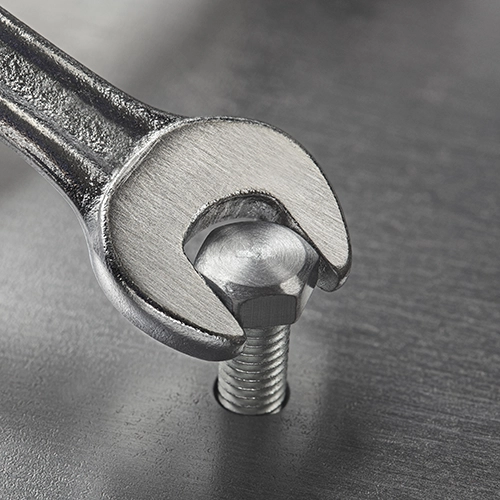
8. Water Heater Hissing, Popping, Crackling and Sizzling
Furnaces are not the only heaters that make noise. Your home’s water heater can also pop, hiss, crackle or sizzle.
- Popping or knocking sounds: Your water heater might go “pop, pop, pop” when there is a lot of sediment buildup. Calcium and other mineral deposits can accumulate in the heater’s tank if you have hard water. The knocking noises result from water boiling underneath the sediment. Once you start hearing popping regularly, flush the heater to clear away buildup.
- Crackling: Crackling noises are common when condensation forms around the water heater’s burner. Usually, these sounds are not a cause for concern.
- Hissing: A water heater might start to hiss for the same reason a teakettle whistles when it comes to a boil. The tank’s temperature might be too high, causing pressure to build up inside. The excess pressure forces the temperature and pressure relief valve open, producing a hissing sound. Sediment buildup can also increase pressure in the tank and make a hissing noise. If you hear a hiss from your water heater, have a technician look at it to determine the cause.
- Sizzling: When you hear your water heater sizzling, it is often because the water leaks onto a burner. Along with a sizzling sound, another sign that your water heater is leaking is a pool of water at the base of the heater.
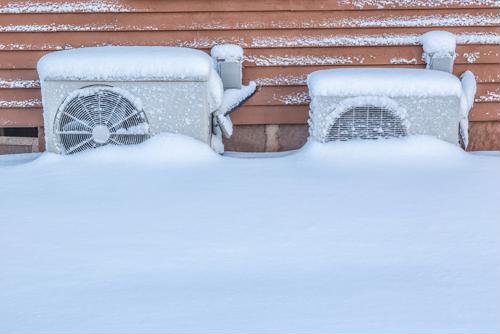
9. Heat Pump Loud Vibration
When all is well with your heat pump, it should be about as loud as a dishwasher. A loud vibration noise or humming from the heat pump is a straightforward problem to correct. Often, loud vibration noise results from an uneven surface. Putting a rubber pad under the heat pump will level the surface and absorb the sound. Vibrating noises can also happen when there are screws or other parts loose in the heat pump.
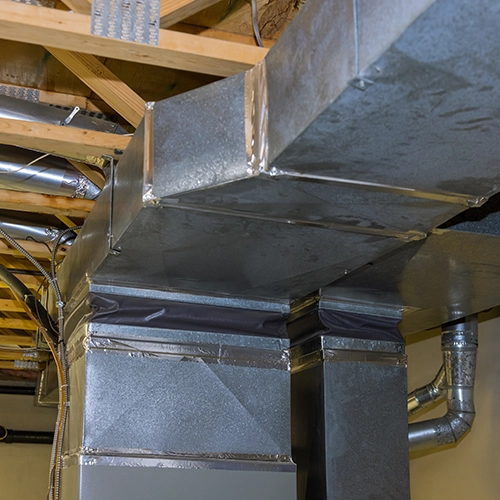
10. Rattling Ducts
Rattling air ducts are not usually a cause for concern, as they do not indicate a larger issue with your heating system. A rattling or buzzing noise from an air duct can mean something is loose and causing vibration. In some cases, the duct might be smaller than the vent opening, which causes it to move back and forth and rattle as air passes through. While most rattling ductwork is relatively harmless, parts like loose joints can lead to heat loss and make your furnace work harder than it otherwise would.
How to Troubleshoot Noises in Your Heating System
Knowing what sounds are normal for your system is the first step when troubleshooting. If your furnace or heat pump usually produces a low, gentle hum, you likely have nothing to worry about. If instead your system is suddenly rattling, banging, clanking or whistling, you will want to investigate what is going on.
It is a good idea to protect your home and family by calling a trained technician to evaluate the problem, especially if the noise is unusual. The technician will diagnose the problem and recommend the ideal solution.
Quick Solutions for Silencing Your HVAC System

Sometimes, a quick fix or two can help silence a noisy heating system. Try these DIY fixes to help your furnace or heat pump operate more quietly.
- Change the air filter: The filter in your furnace traps dust, hair and pet fur and keeps them from traveling through the ducts and circulating throughout your home. The filters become clogged after months of continuous use. It is past time to change them if you hear whistling from your furnace. A clogged filter can prevent air from flowing freely through the system. As a general rule, plan to change the filter at least once a season — more often if members of your household have allergies, asthma and other respiratory issues.
- Request ongoing or preventive maintenance: Like your car or a bicycle, a heating system needs regular tuneups and inspections to make sure everything works correctly. During a tuneup, a technician will adjust and clean parts of the furnace, improving its function.
- Check dampers: Closing the vents or dampers in some rooms can restrict airflow, leading to a whistling noise from the furnace. Inspect the vents around your house and slide them to the open position if needed.
- Check ducts: Air ducts can produce various noises, from rattling to banging. Inspect your ductwork, looking for loose joints, dings, dents or extra space between the edges of the ducts and the vents. If you notice anything loose, you can try to tighten it or seal it with duct tape.
When to Call for Furnace Repair or Replacement
Though rattling, whistling and humming are usually not causes for concern, you should not ignore some noises. Switch the furnace off and call SMO Energy if you hear any of the following from your heating system:
- A bang
- A boom
- Knocking
- Screeching
- Rumbling
- Loud, persistent humming
Noisy operation is not the only sign your heating system may need attention — the following issues can also be a signal to call a professional:
- Your furnace frequently turns on and off.
- Your heating bill is unusually high.
- There are cold or hot spots throughout your home.
- The temperature does not seem to rise even when you turn up the thermostat.
No matter the issue, one of our trained technicians will inspect your system to figure out what is going on. We will recommend the next best steps based on our findings. Once we fix your furnace or install a new one, we recommend an annual service agreement, which covers your equipment when it needs repair. The service agreement also includes an annual inspection and tuneup for extra peace of mind.
Act Quickly on the Signs of a Failing HVAC System
When your heating or HVAC system begins to make strange noises, it is often trying to tell you something. Even if you can get used to the screeching, whistling or persistent humming, it is not wise to procrastinate, as these noises can point to a serious problem with your equipment. Keeping your heating system in its best condition helps protect your family’s safety and prevent property damage.
Contact SMO Energy if your furnace, heat pump or HVAC starts acting funny and making noise. We repair and replace residential heating equipment and systems across Southern Maryland, drawing from over 90 years of service in the fuel oil industry and more than a century of combined HVAC technician experience. We are happy to investigate your system and let you know what you can do next.

